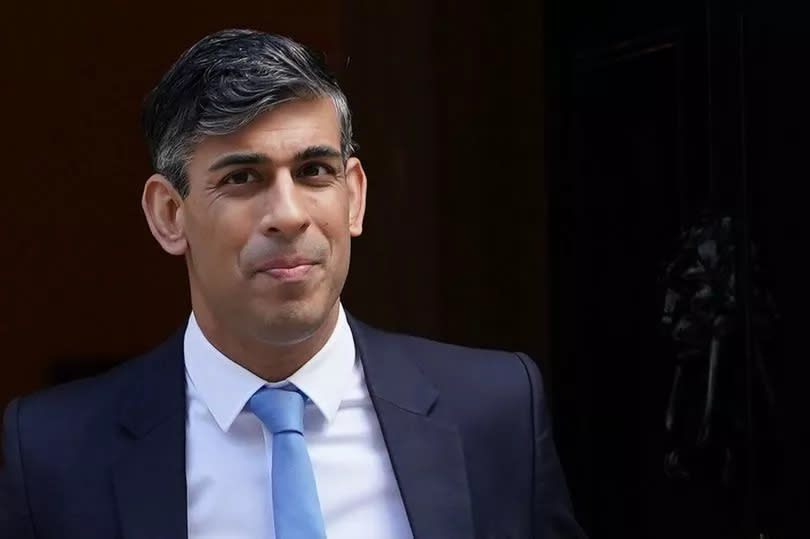Major DWP changes announced as 250,000 people warned benefits could be 'removed entirely'
More than 250,000 people have been warned that they could have their benefits 'removed entirely' under a new welfare crackdown announced by the prime minister.
In a speech on Friday morning, Rishi Sunak said benefit claimants who are unemployed for more than 12 months despite being deemed fit to work could have their benefits stopped as he announced a new crackdown on 'sick note culture'.
He said payments from the Department for Work and Pensions (DWP) to more than a quarter of a million people could be ended as part of the new plans, which aim to reduce the number of people out of work due to long-term sickness.
READ MORE: HMRC issues update to anyone with an ISA after banks told to make changes
Speaking at the Centre for Social Justice in London, Mr Sunak said: "More than 500,000 people have been unemployed for six months and well over a quarter of a million have been unemployed for 12 months. These are people with no medical conditions that prevent them from working and who will have benefitted from intensive employment support and training programmes.
"There is no reason those people should not be in work, especially when we have almost 1 million job vacancies. So we will now look at options to strengthen our regime.
"Anyone who doesn’t comply with the conditions set by their Work Coach such as accepting an available job will, after 12 months, have their claim closed and their benefits removed entirely."
As of February, more than 2.8 million people in the UK are "economically inactive" due to ill health, an increase of a third, while government spending on sickness benefits has increased by £27 billion, the government said.
Mr Sunak decried the growing number of young workers becoming long-term sick, saying: "There's nothing compassionate about leaving a generation of young people to sit alone in the dark before a flickering screen watching as their dreams slip further from reach every single day."
The prime minister described claiming benefits as a "lifestyle choice" for some and said that the reforms would "make the system fairer and harder to exploit," by demanding greater evidence for Personal Independence Payment (PIP) claims and making it more difficult to qualify for the benefit.

Richard Kramer, chief executive of disability charity Sense, said: “The government’s ongoing onslaught on disabled people is hard to watch, with the prime minister today taking aim at people who are long-term sick in a cruel speech demonising people with ‘sick notes’.
“This rhetoric is unbelievably damaging and unhelpful, presenting disabled people as ‘shirkers’ who don’t want to work.”
Reforms could also include replacing cash payments with access to "talking therapies", as well as removing GPs from the sick note process entirely. This would be the largest change to sick notes since 1948, when the founding of the NHS established GPs, rather than the government, as the adjudicator of a person's fitness to work.
Though there are currently few details apart from a promised consultation, in the plans floated by Rishi Sunak in his speech today, "specialist professionals" could replace doctors as the decision-makers on worker health. These adjudicators would have the power to issue sick notes, as well as an "objective assessment" of a person's fitness to work.
The prime minister said: "We don't just need to change the sick note, we need to change the sick note culture so the default becomes what work you can do - not what you can't."
Ben Harrison, Director of the Work Foundation at Lancaster University, warned that making access to health-related benefits harder and threatening some with losing them entirely "may make their condition worse".
He said: "The focus should be on de-risking returning to work for those with long-term health conditions, and critically, on stemming the flow of people who are leaving work due to sickness. That means making big improvements to the quality of work on offer so that they can find sustainable employment."

 Yahoo News
Yahoo News 
